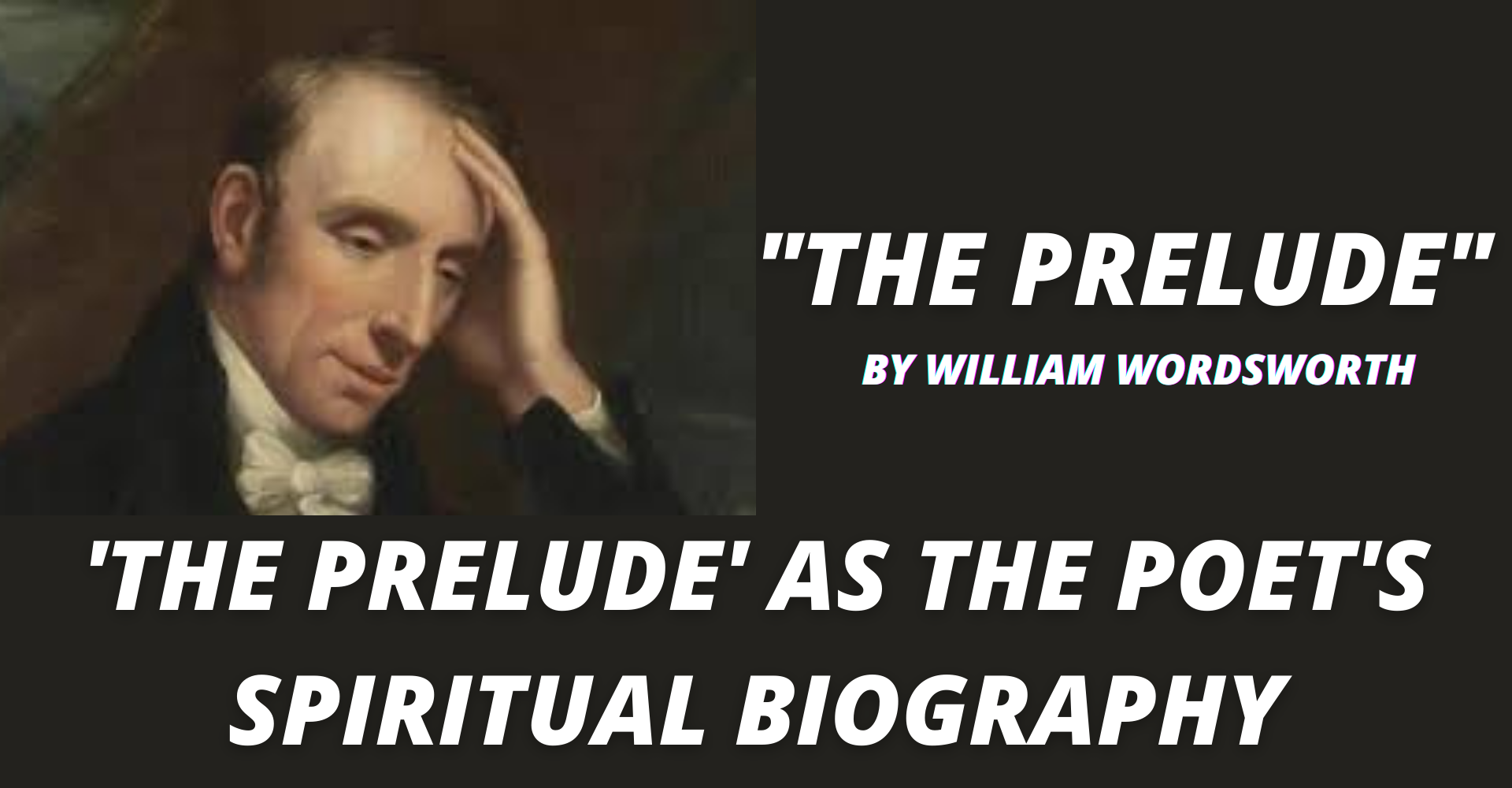On his retirement to the native mountains, Wordsworth resolved ‘construct a literary work that might line, before adjoining himself to this task, he took a review of his mind and probed into himself how far nature and the education of the world had qualified him. Later on, he started writing them in verse and the result is the long autobiographical poem- ‘The Prelude’ it presents an authentic record of the growth of the poet’s mind and soul right down from his earliest childhood upto the year 1799. The subtitle of the poem ‘The growth of poet’s mind’ is also an endorsement to this fact.
The initial books of ‘The Prelude’ narrate Wordsworth’s childhood and describe how his tender mind was shaped and influenced by different objects of nature. Until the age of ten years, nature filled his mind with beautiful images and impressions but soon they started speaking to his spirit by sending naked and feelings into him like a breeze. As he drunk in the lovely sight of the morning and mists overshadow the lakes, his spirit felt the communion with the eternal beauty.
“I held unconscious intercourse with beauty
Old as creation, drinking in a pure
Organic pleasure from the silver wreaths
Of curling mist, or from the level plain
Of waters coloured by impending clouds”.
Later on Wordsworth trace the three stages of his love for nature. At first, it was of animal passion. The ‘courser pleasures’ in the lap of nature delights him a lot and the poet was busy with fishing, boating, gathering flowers, birds and horse-riding over the high lands. At that time, nature was a big playground for his physical activities and he led a healthy life of sports and adventure but gradually the ‘courser pleasures’ and ‘glad animal movements’ lost their charm and the poet started loving nature for its ‘mute meaning’.
In the third stage Wordsworth’s love for nature took musical colouring. The poet visualised in nature when entering into flower plants, trees, rivers, mountains and start gave them dives of their own. He discovered the presence of ‘godliness’ embedded in them . To the common eyes this presence of ‘godliness’ may not be visible or comprehensible but to the poet’s soul it is very much obvious:
“Oh there is blessing in this gentle breeze, A visitant that while it fans my cheek Doth seem half conscious of the joy it brings From the green fields, and from yon azure sky”.
But perhaps the most decisive event was his experience returning homewards from Cambridge when he was charmed by the colours of the beautiful dawn that made Wordsworth, the man, feel his destiny of a poet:
“An auxiliary light Came from my mind, which on the setting sun Bestowed new splendor”.
Here, one gets an account of ‘the light that was on sea or land’ and it was the light of the creative imagination of the poet. Actually at Cambridge University Wordsworth studied Chaucer, Spenser, Shakespeare and Milton deeply and they strengthened and his soul and belief in man’s innate dignity. When the French Revolution broke out, the ideals of equality, liberty and fraternity caught his attention a portray to the cause. But its failure gave an emotional set back to the poet and the and he felt ‘a spiritual crisis’. It impaired his imagination and successive volumes of ‘The Prelude’ and replete with this agony of the poet’s souls.
But as it, sufferings and set-backs, pains and agonies constituent the largeness of a poetic soul. They give birth to greater sensibilities and keener insights into the realities of life. So, it happened with Wordsworth and his love for nature gave a way to the love for mankind. He heard ‘a still sad music of humanity’ all around nature. In this way ‘The Prelude’ proves to be a great spiritual autobiography in which Wordsworth presents the growth of his mind and soul and the record of his poetic life. There may be dull patches here and there in a long poem but its total effect is undoubtedly grand and sublime.
PLEASE HELP ME TO REACH 1000 SUBSCRIBER ON MY COOKING YT CHANNEL (CLICK HERE)











